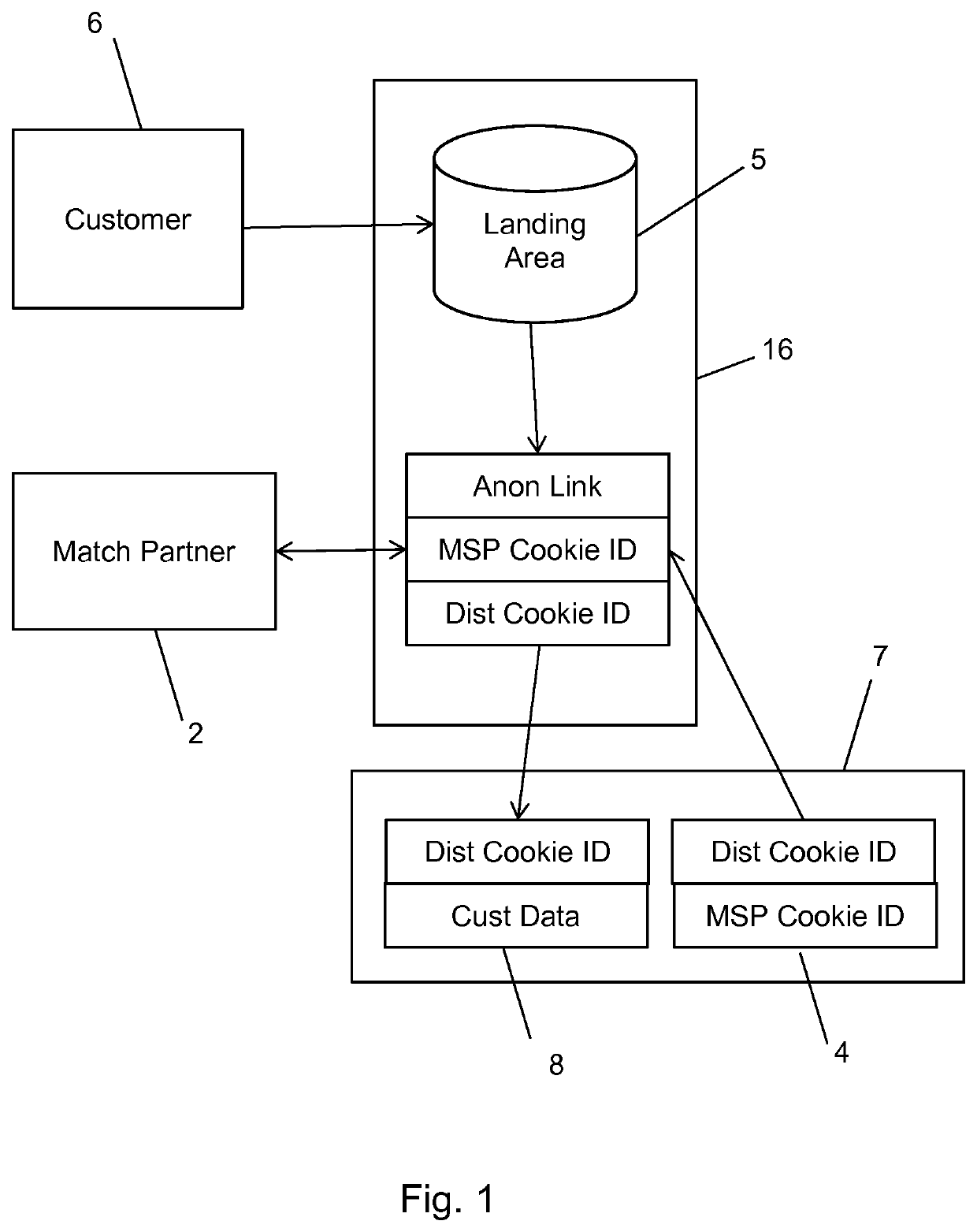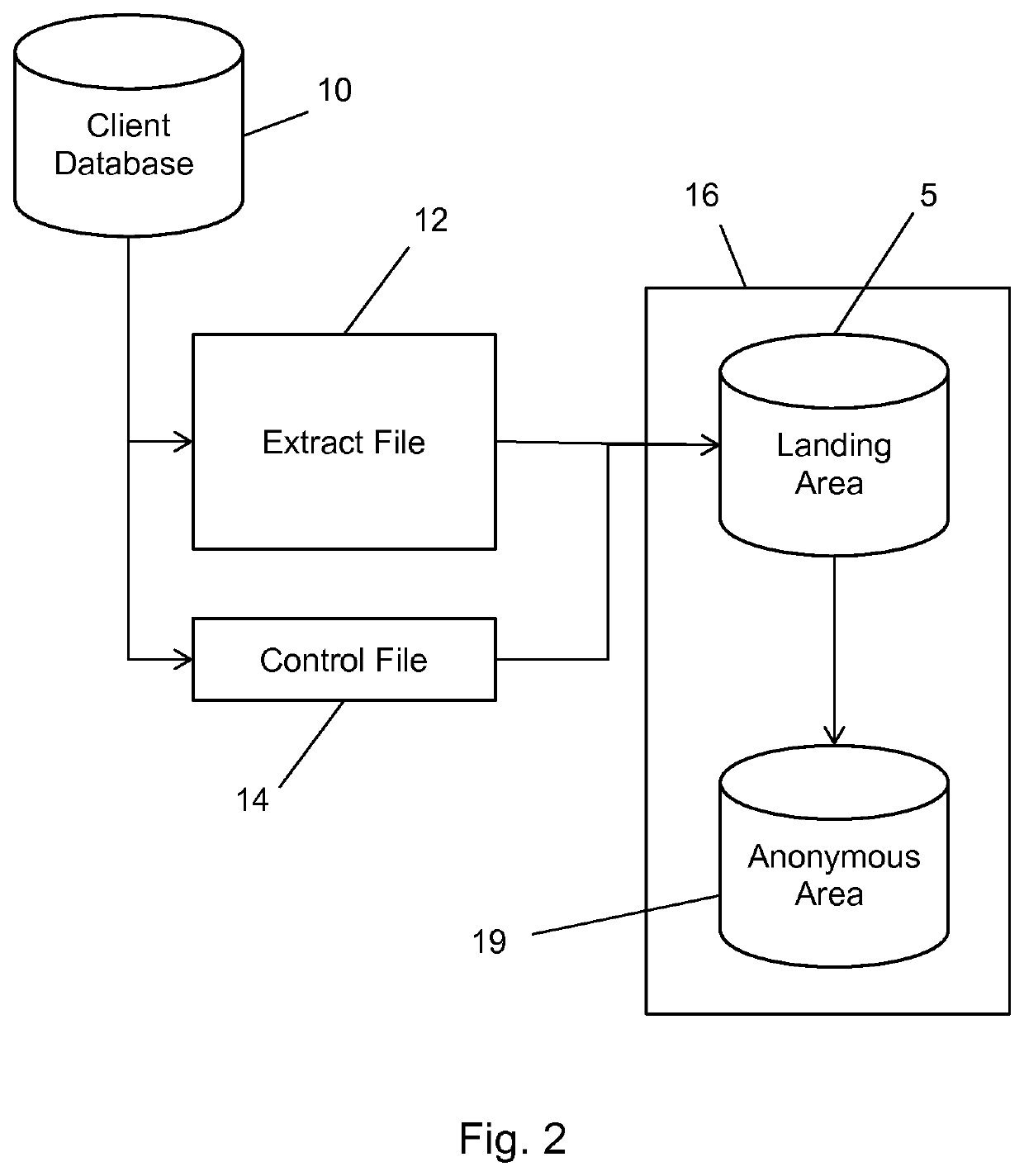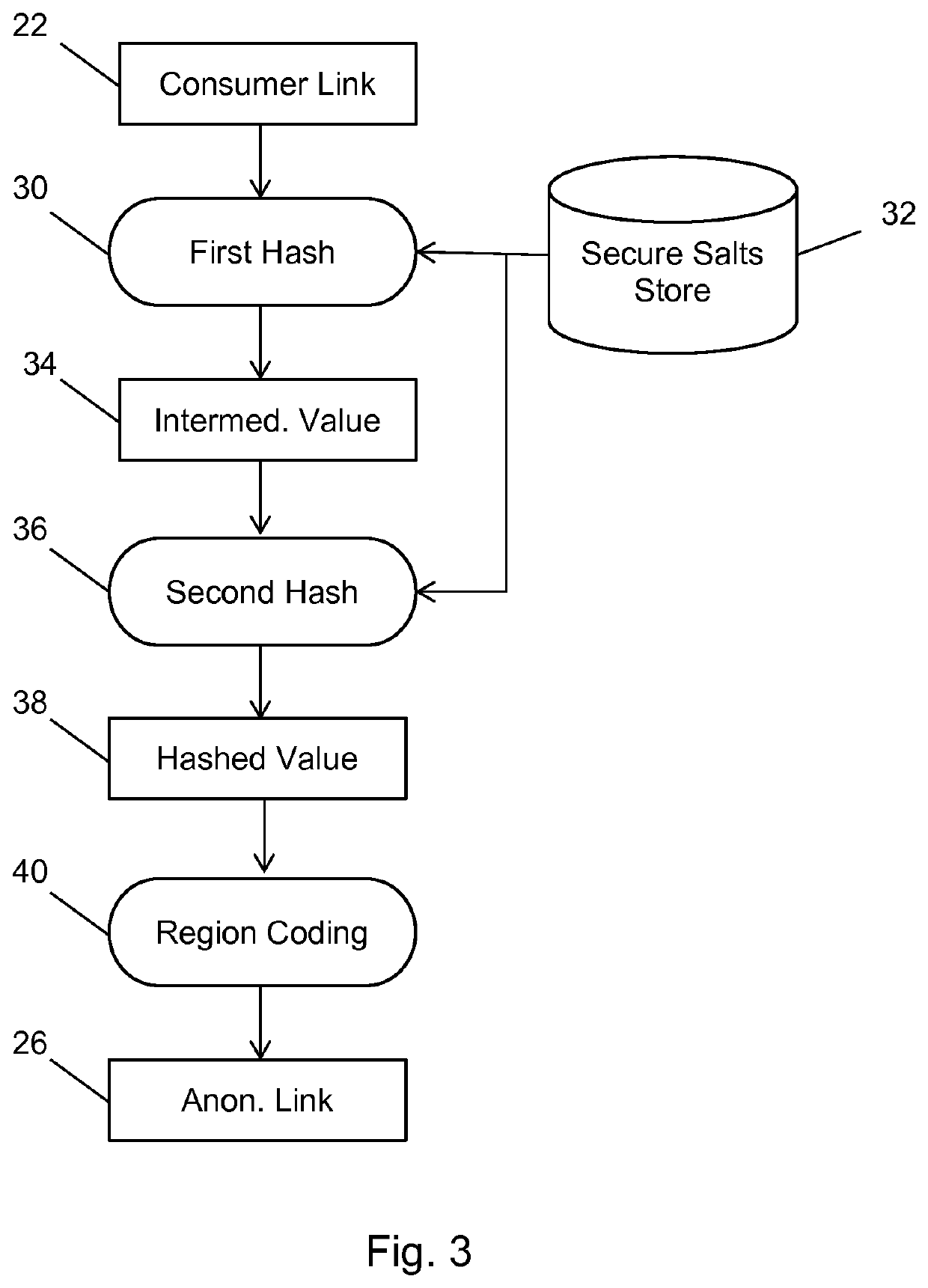Anonymous links to protect consumer privacy
anonymous links and consumer privacy technology, applied in the field of anonymous links to protect consumer privacy, can solve the problems of revealing such information to all, largely untargeted online advertising efforts, and largely untargeted efforts, and achieve the effect of strong privacy protection
- Summary
- Abstract
- Description
- Claims
- Application Information
AI Technical Summary
Benefits of technology
Problems solved by technology
Method used
Image
Examples
Embodiment Construction
)
[0027]Before the present invention is described in further detail, it should be understood that the invention is not limited to the particular embodiments described, and that the terms used in describing the particular embodiments are for the purpose of describing those particular embodiments only, and are not intended to be limiting, since the scope of the present invention will be limited only by the claims.
[0028]In various embodiments, the invention allows for the use of consumer information pertaining to an individual that is based on Personally Identifiable Information (PII) such as name, address, telephone number, and email, but which can be de-identified in a manner that does not allow the data to be re-identified by an outside party. In this way, the data may be used for online marketing without a loss of privacy for the consumer about whom the information pertains. The software, processes and computer hardware utilized for these methods and systems further allow data, once...
PUM
 Login to View More
Login to View More Abstract
Description
Claims
Application Information
 Login to View More
Login to View More - R&D
- Intellectual Property
- Life Sciences
- Materials
- Tech Scout
- Unparalleled Data Quality
- Higher Quality Content
- 60% Fewer Hallucinations
Browse by: Latest US Patents, China's latest patents, Technical Efficacy Thesaurus, Application Domain, Technology Topic, Popular Technical Reports.
© 2025 PatSnap. All rights reserved.Legal|Privacy policy|Modern Slavery Act Transparency Statement|Sitemap|About US| Contact US: help@patsnap.com



